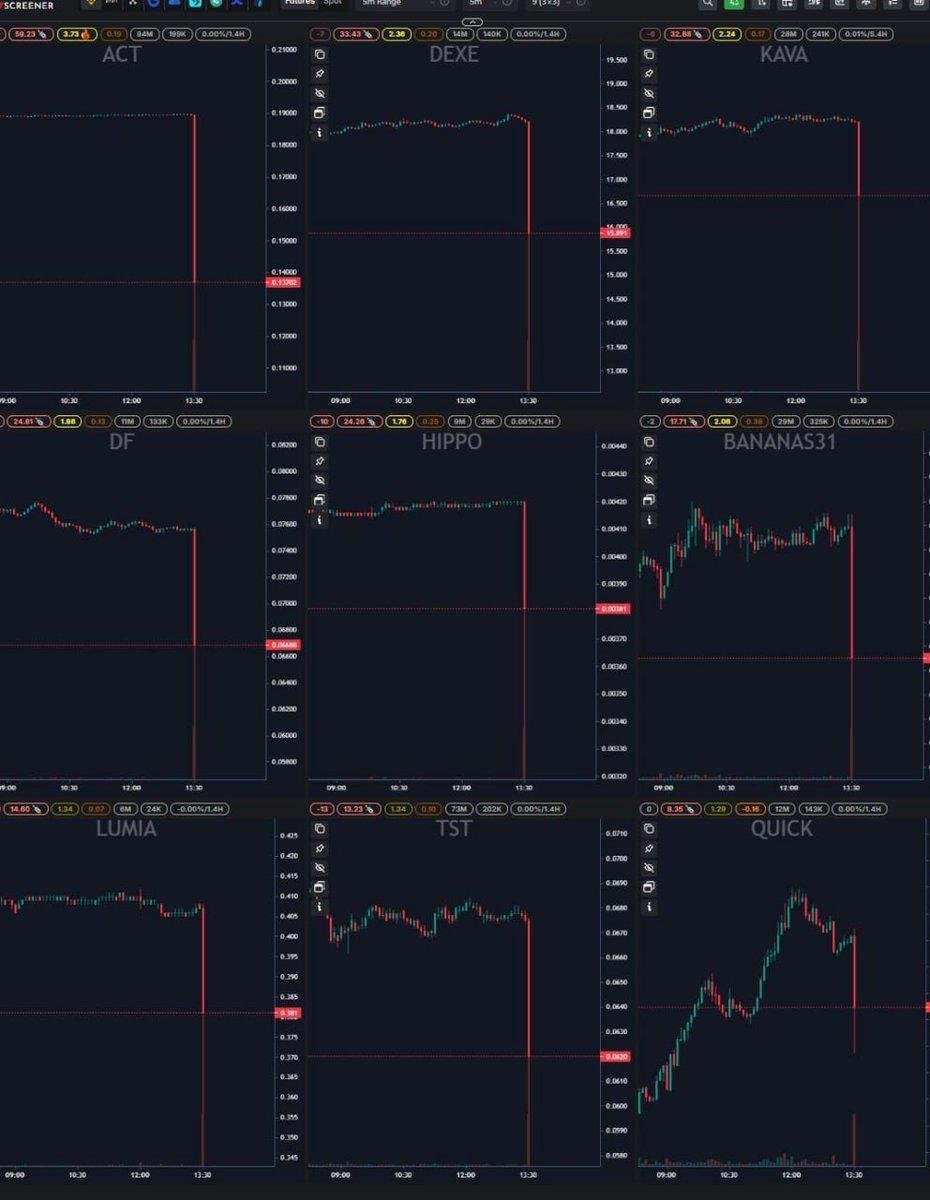Even the founders themselves can't figure out what MM is doing 🔥
The most opaque and often overlooked part of the Crypto market, which frequently leads to disastrous consequences, is the "relationship between market makers and project teams."
Every so often, a story pops up saying, "We were messed over by the market makers": the coin price plummets by 90%, the founder tweets in anger, the community is in an uproar... and then nothing happens. No follow-up investigation, no transparent explanation, no standard procedures. There isn't even basic information symmetry.
In the past year, many projects have fallen into this situation. Some founders accuse large market makers of being the culprits behind the price crash, but the truth remains completely unknown to outsiders. Such operations not only harm investors but also unjustly affect teams that genuinely want to build long-term projects.
Is this serious? 😱
Because market maker agreements often involve:
• Providing liquidity for the coin
• Whether there is a commitment not to sell (or conversely: selling services)
• Whether they hold team assets
• Conditions for capital leverage and position operations
But today, when you buy a token, in most cases, you don't even know what these basic agreements look like. It's like buying a company's stock without knowing its issuance volume, having no financial reports, and not even knowing who the directors and supervisors are.
This is not a technical issue, but an institutional issue. 😭
The current structure allows for:
1. Unequal, non-standard agreements between project teams and market makers that may even hide selling pressure conditions
2. Market makers having extremely high operational freedom, even able to engage in "bilateral trading" (mutual punching, price control) on CEX
3. Once a crash occurs, the founder can blame the market maker; the market maker then says, "We were just following instructions" — both sides pass the buck
In the end, the ones who suffer are always the retail investors who lack information and channels.
What changes do we need?
In the future, this information should be treated as basic disclosure obligations, just like "total token supply" and "founder unlock schedule":
• Project teams should publicly disclose key terms of market-making agreements (such as selling pressure limits, whether the market maker holds coins, whether they are selling, etc.)
• CEX should establish listing standards, refusing projects that do not disclose market maker cooperation details
• If a project team accuses a market maker, they should provide specific evidence rather than emotional statements; otherwise, it constitutes misleading the community
Even for "high-quality market makers," establishing transparent disclosure standards is beneficial: it lets the market know who the legitimate liquidity providers are and who the exit agents dumping coins in the shadows are.
Conclusion:
You wouldn't buy a token without an unlock schedule, so why would you buy a project where even the market maker terms are not transparent?
If even the founders themselves can't figure out what MM is doing and can only guess and vent on social media — then as external participants, we are even less able to assess basic risks.
This industry needs not just technological innovation but also upgrades in institutional design and transparent governance.
Show original
15.08K
77
The content on this page is provided by third parties. Unless otherwise stated, OKX is not the author of the cited article(s) and does not claim any copyright in the materials. The content is provided for informational purposes only and does not represent the views of OKX. It is not intended to be an endorsement of any kind and should not be considered investment advice or a solicitation to buy or sell digital assets. To the extent generative AI is utilized to provide summaries or other information, such AI generated content may be inaccurate or inconsistent. Please read the linked article for more details and information. OKX is not responsible for content hosted on third party sites. Digital asset holdings, including stablecoins and NFTs, involve a high degree of risk and can fluctuate greatly. You should carefully consider whether trading or holding digital assets is suitable for you in light of your financial condition.

